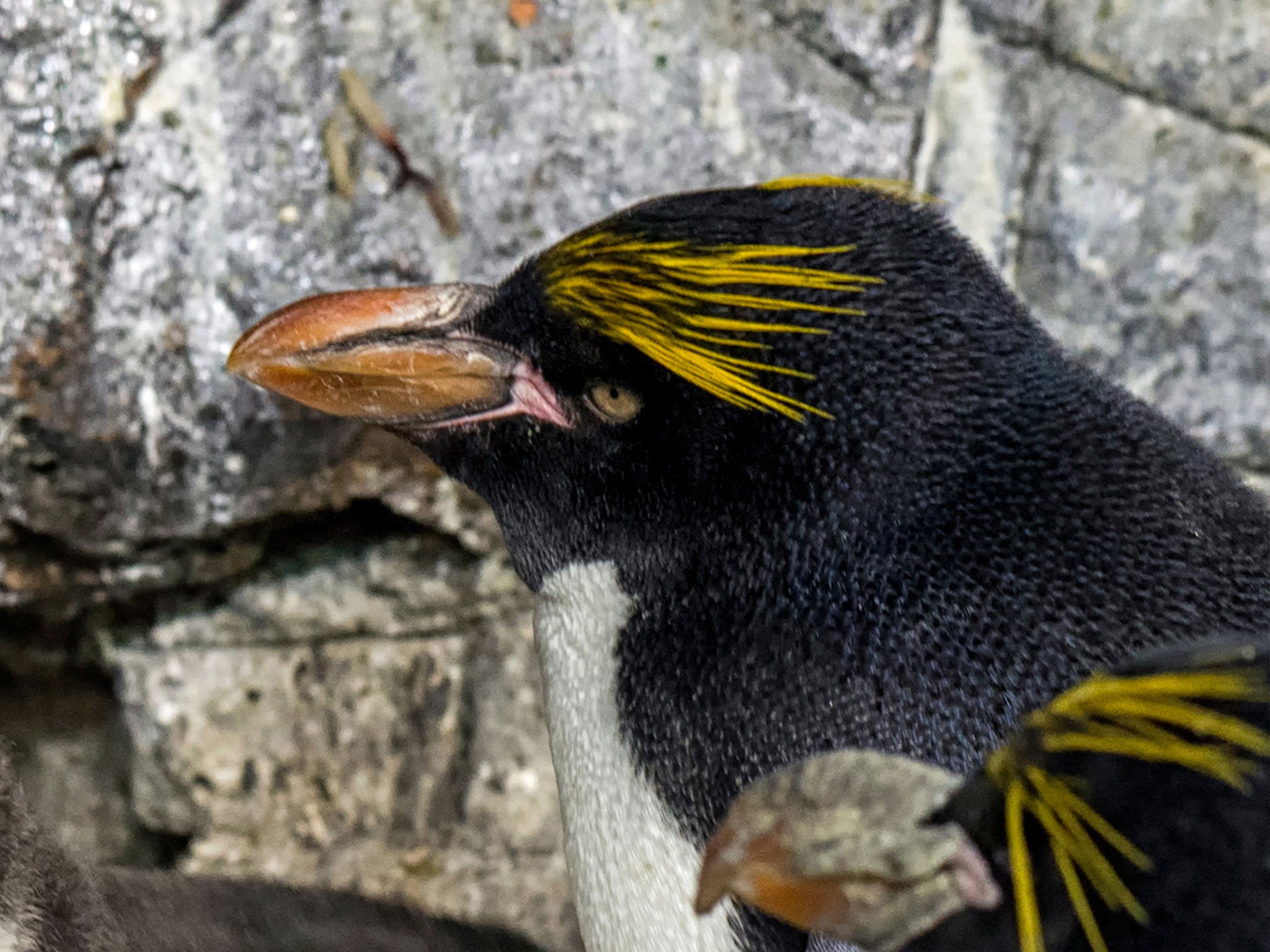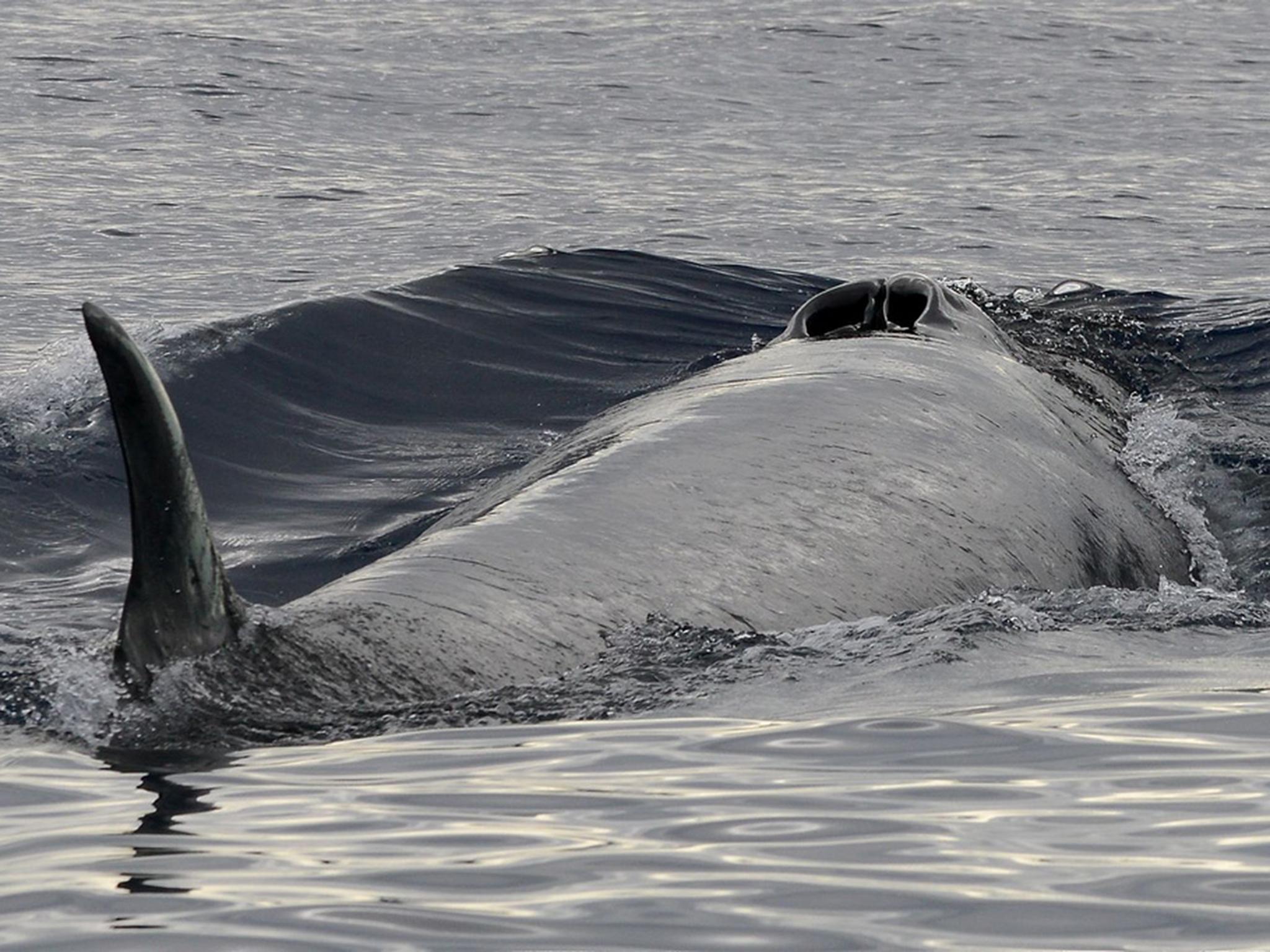Brexit to endanger penguins, whales and seabirds as EU wildlife grants dry up
Exclusive: Wildlife protection schemes on UK Overseas Territories benefit from European grants worth around £1.3m - but Government's 'reckless hard Brexit plans' are putting them at risk

Funding to protect critically endangered wildlife, including whales, penguins and seabirds, could be at risk as a result of Brexit, campaigners fear.
Hundreds of thousands of pounds worth of EU grants are now threatened as a result of the vote to leave the bloc.
The money is used to support wildlife conservation projects in UK Overseas Territories (UKOTs) stretching from the Caribbean to the South Atlantic.
Macaroni penguins, sei whales and turtles benefit from the grants, but environmentalists warn there is no guarantee of funding for future projects once Britain cuts ties with Brussels.
Five projects in the South Atlantic are currently funded by the Best 2.0 scheme, which runs until December 2019.
But the Government has failed to give any assurances about the funding for wildlife schemes after Brexit.
Theresa May has promised to trigger Article 50 by the end of March, starting two years of negotiations. It is understood that UKOTs will then be ineligible for funding as Britain will be outside the block and unable to apply for new grants.

Experts believe the Macaroni penguin could be hardest hit as the UK is responsible for more of that globally-endangered species than any other nation.
Among the other conservation efforts supported by Best 2.0 is a project to protect sei whales in the seas surrounding the Falkland Islands.
The species is classified as “endangered” on the International Union for Conservation of Nature’s “red list”.
Almost 100,000 euros (£87,000) was awarded to help protect their population, which has been depleted by as much as 80 per cent in recent years, largely as a result of the commercial whaling industry.
A similar sum was spent on restoring forests on Nightingale Island in the UKOT of Tristan da Cunha – home to just 80 pairs of Wilkins’ bunting birds that are now threatened by invasive rodents and other alien species from nearby islands and shipwrecks.
EU cash is also being used to fund an assessment of shallow water seamounts – underwater mountains – on Ascension Island, roughly half-way between West Africa and Brazil.
The work is allowing experts to determine the best locations for marine reserves that restrict fishing in the equatorial Atlantic Ocean.
Two projects to protect gumwood and cloud forest on the British-administered island of St Helena’s also benefit from Best 2.0 grants.
A total of around £300,000 of EU money helps protect wildlife on UK territories in the South Atlantic alone – from a total budget for UKOTs that is estimated to reach £1.3m.
Tara Pelembe, deputy director of the South Atlantic Environmental Research Institute, said a loss of EU funding risked making the future for already endangered species in some of the world’s most remote environments even more precarious.
“The Best funding scheme… is a very welcome additional source of funding for biodiversity and conservation projects in the region,” she told The Independent.
“Some of the projects focus on the management of on endemic and endangered species, and as such will likely have an impact on their survival rates.”
Additional resources also help fund projects in the Caribbean, including the protection of turtles off the coast of Anguilla.
Liberal Democrat MEP Catherine Bearder, who founded the cross-party MEPs for Wildlife group, said the Government was "putting vital protections for threatened species at risk through its reckless hard Brexit plans.
“Britain’s membership of the EU has played a crucial role protecting some of our most iconic species.
“Ministers must give assurance that legal protections and funding streams that protect our wildlife will be fully replaced after Brexit."
Wildlife charity RSPB said the Government had questions to answer about the protection of species after Brexit.
A spokesperson said: “The UK’s Overseas Territories are home to some fantastic species and precious habitats. Unfortunately some of these species are under threat. Funding schemes such as BEST have been and continue to be important in bringing together the people and resources needed to tackle problems that extend beyond international borders.
“So, as the UK Government plans our future outside of the European Union there are important questions that need to be answered about how we continue to support the vital work to protect nature in our Overseas Territories.”
A spokesperson for the Government declined to comment directly on whether there were plans to protect funding for conservation projects on UKOTs after Brexit, but said: “Our ambition is to be the first generation to leave the natural environment in a better state than we found it while securing the best deal for the country as we leave the EU.”
Join our commenting forum
Join thought-provoking conversations, follow other Independent readers and see their replies
Comments
Bookmark popover
Removed from bookmarks